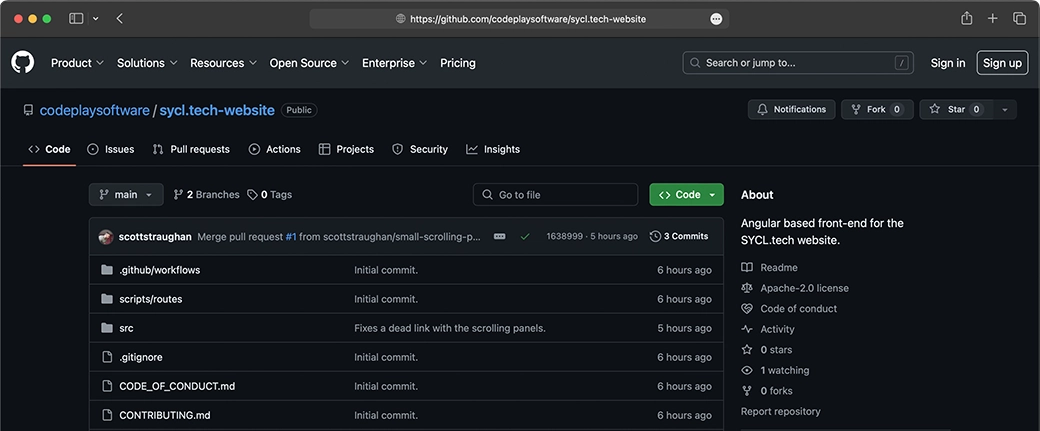Get Started with SYCL
Take advantage of diverse hardware with heterogeneous computing powered by SYCL - the cross-platform, parallel C++ abstraction.
#include <sycl/sycl.hpp>
#include
A Decade of Heterogeneous C++ Compute Acceleration with SYCL
The Khronos® Group is celebrating a significant milestone as SYCL™ marks its tenth anniversary. Firs..
A Decade of Heterogeneous C++ Compute Acceleration with SYCL
The Khronos® Group is celebrating a significant milestone as SYCL™ marks its tenth anniversary. Firs..

The SYCL standard is defined by the Khronos Group, the open member-driven consortium that manages a wide range of royalty free open standards. Learn more and get involved.
News & Updates
Implementation Activity
hdelan created a new commit to llvm.
Jun 18, 2025, 11:12:36 AM
EwanC created a new commit to llvm.
Jun 18, 2025, 10:31:16 AM
frasercrmck created a new commit to llvm.
Jun 18, 2025, 10:03:22 AM
KornevNikita created a new commit to llvm.
Jun 18, 2025, 7:59:09 AM
zhaomaosu created a new commit to llvm.
Jun 18, 2025, 7:10:44 AM
DPC++ daily 2025-06-18 has been released.
Jun 18, 2025, 4:02:51 AM
Ecosystem
If you have written a new SYCL blog, have created an amazing new SYCL project or would like to share a SYCL based link, please contribute to this project! Our site happily living on GitHub.com and we are happy for anyone to contribute to it.

Contribute SYCL News, Projects, Event & More!
We need your help. If you have created a new SYCL based project, found an interesting news post or would like to share an upcoming event, please create a PR on GitHub and add it to our site.

